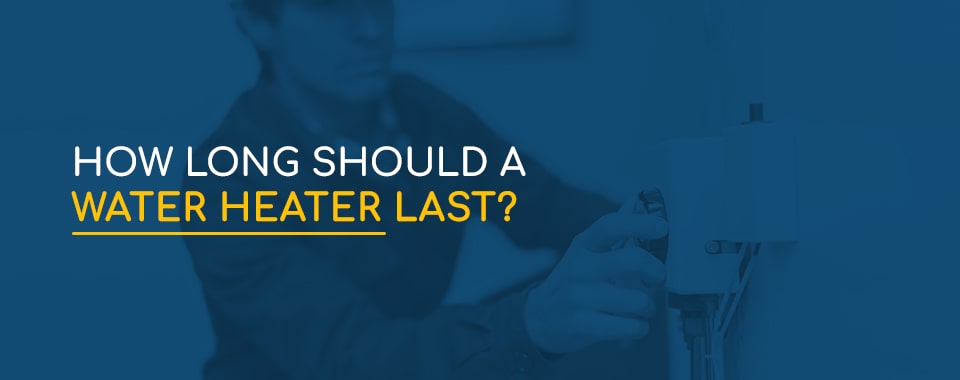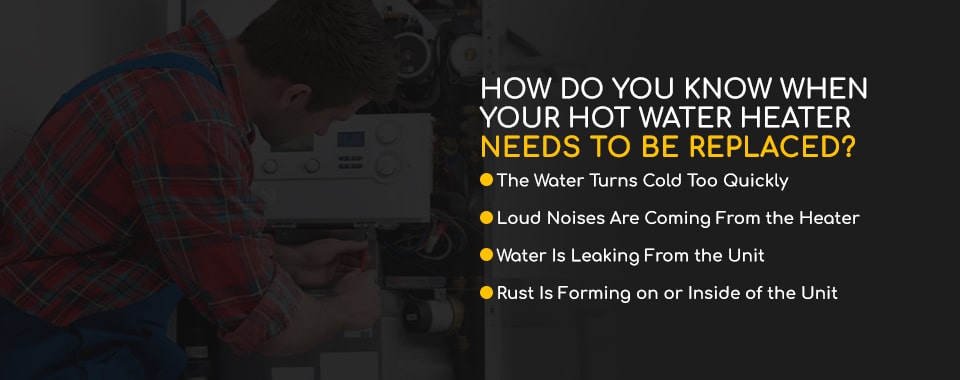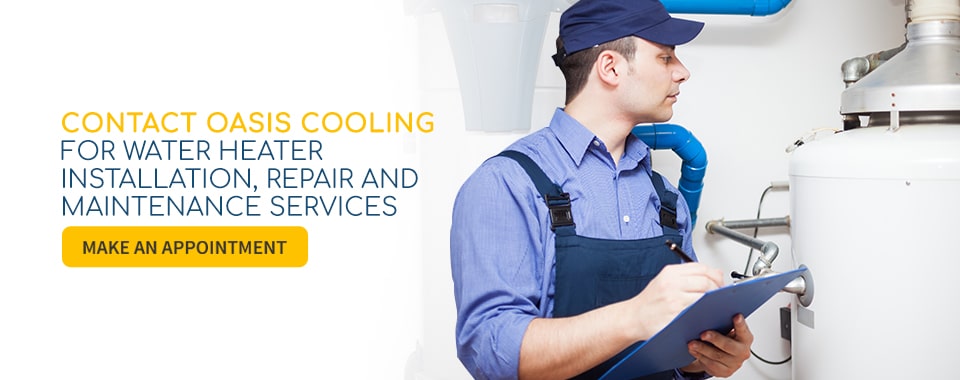
While it would be wonderful if you could predict exactly when to replace your water heater, it’s rarely that simple. There are numerous variables that go into how long a water heater lasts, from its age to the type of water inside. Fortunately, with some maintenance and knowledge of replacement warning signs, you can ensure your water heater lasts as long as possible.
Keep reading to learn more about how to tell when a water heater needs to be replaced.
How Long Should a Water Heater Last?
A residential water heater can last between 6 and 13 years before you need to replace it. This timeframe depends on the type of water running through it and whether you follow a yearly schedule of draining and flushing the tank. Since the range is so extensive, it’s crucial to keep an eye on your water heater to look for signs that you need a new one.

How Do You Know When Your Hot Water Heater Needs to Be Replaced?
Understanding the signs of a broken or worn-down water heater will help you find a solution quickly. There are numerous reasons why a hot water heater may need a replacement. These indicators include:
1. The Water Turns Cold Too Quickly
Does the water in your water heater become cold too quickly or fail to become hot at all? There are several reasons why:
- Thermostat settings: A water heater may not produce hot water if the thermostat isn’t set correctly. Ideally, the thermostat should be at between 120 and 140 degrees Fahrenheit. This is a simple fix that just requires you to update the thermostat.
- Heating element: Another reason for a sudden lack of hot water is that the heating element in your water tank gave out or is giving out. The heating element in electric water tanks is usually a coil. Sometimes the connections go bad, making it so the appliance can’t heat the water. Alternatively, gas-powered water heaters use a burner to heat the water, which can go bad over time if not properly maintained. If either is the case, you need to call a professional.
- Tank size: All of the appliances in your home could be using the hot water before you can, which typically happens when numerous people live in the same household. In this situation, you may need a bigger tank. A professional can perform an assessment to recommend a properly sized water tank.
- Tank location: If your water tank is located outdoors or in an uninsulated area of your home, cold weather can affect the water temperature. It may be too cold to heat your water fast enough or to a high enough temperature. If this only happens during cold weather, you might need to find ways to keeps your tank or the pipes insulated from the cold.
2. Loud Noises Are Coming From the Heater
Usually, water heaters make little to no noise. If you start hearing strange or loud noises coming from your water tank, there may be an issue that requires immediate action. For example, tapping, clanging or rumbling noises mean sediment is likely gathering on the bottom of your water heater.
If you use a lot of hot water or live in an area with hard water, you’re more likely to experience this issue. Once the sediment builds up enough, it’s difficult for the machine to heat water correctly and takes longer to do so. This situation will lead to strain on the unit, wear down the metal encasement and eventually cause leaks.
If this is the case, you need to hire a professional to flush your tank. If you continue to hear strange noises coming from your water heater, it may be near the end of its life and require a replacement.
3. Water Is Leaking From the Unit
If you see water pooling around your water tank, there’s an issue that needs immediate attention. If you choose to ignore the leak, you may experience significant damage to your property.
There are a couple of reasons why your water heater may be leaking:
- Over time, your tank may start to form fractures. These cracks may only leak slightly at first, but they can become a significant issue when the pressure becomes too much to handle.
- A loose connection to the water tank is another reason water may be leaking. A leaking pressure/overflow pipe could indicate an issue with the unit or that the relief valve is malfunctioning. In this case, the best thing to do is call a professional to inspect the parts and make sure everything is working correctly.
4. Rust Is Forming on or Inside of the Unit
If you see rust on the outside of your unit near the water inlet, that’s often an indicator that rust has begun to form on the inside of the tank, as well. As a result, you’ll need to replace your unit soon or risk water damage.
Should you notice rusty water, there may be a problem with either your water heater or pipes. One way to see if it’s your water heater is by running three buckets full of hot water from a spout. If the third bucket has rust, your water heater is probably rusty. If the rust dwindles as you run the water, your pipes may be getting rusty.
Note that rust is a precursor to leaking, so replacing your water heater as soon as possible is essential.
Should You Replace Your Water Heater Before It Fails?
If your water heater is getting old but still works, it’s a good idea to look for a replacement. A few reasons why it’s smart to replace your water heater before it fails are:
- A broken water heater makes budgeting difficult. as you have to replace it at a moment’s notice
- A broken water heater leaves you without hot water
- A corroded water heater could cause significant damage
- A new water heater could make your utility bills less expensive
Ultimately, replacing your hot water heater before it becomes an issue will save you time and money.
How Often Should You Drain Your Hot Water Heater?
Regular maintenance of your water heater is crucial to its longevity. It’s recommended that homeowners call a professional to have their tanks flushed once a year. This trick discharges the sediment, helping the water heater last as long as possible.

Contact Oasis Cooling for Water Heater Installation, Repair and Maintenance Services
Oasis Cooling is ready to handle your water heater needs. No matter your needs, you can contact us for professional water heater installation, repair or replacement in northern Virginia. At Oasis Cooling, we have 15 years of experience working on heating and cooling systems in Northern Virginia, and we’re on call 24 hours a day ready to assist you!


![([site_name)]](/assets/templates/main/images/footer-logo.png)



